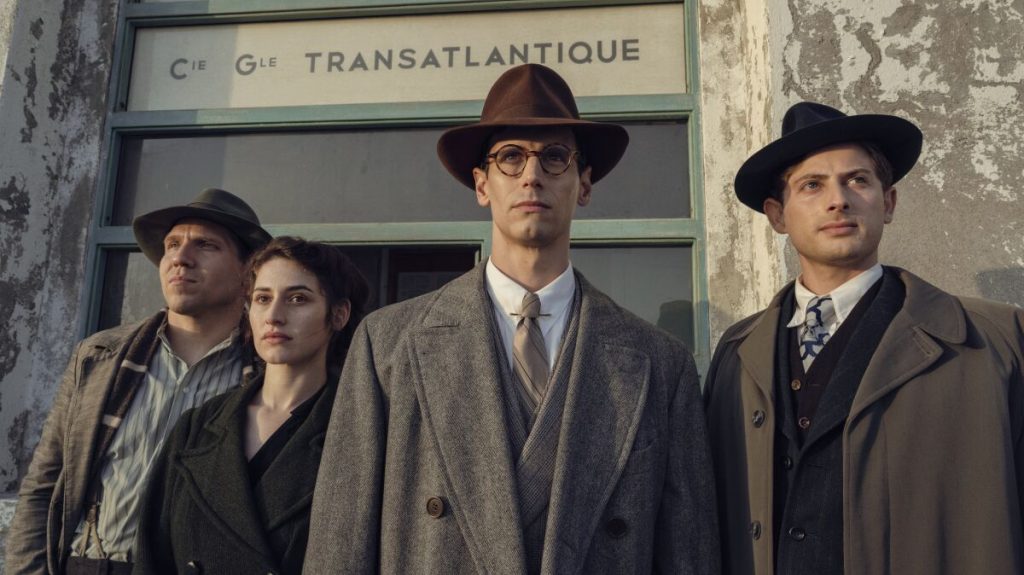
In Netflix’s ‘Transatlantic,’ the American journalist who saved Hannah Arendt and Marc Chagall is reimagined as a virtuous victim
by Phyllis Chesler
Transatlantic, which debuted on Netflix earlier this year, is a highly fictionalized and long overdue mass-market dramatization of a remarkable true story: The heroic and unbelievably successful effort by American journalist Varian Fry to rescue more than 2,000 intellectuals, artists, and thinkers—many but not all of whom were Jews—from the Nazis and Vichy police. This all took place in Marseille between 1940 and 1941, where Fry was posted as a representative of the Emergency Rescue Committee.
I appreciate that the creators of this series have resurrected an important—albeit forgotten—episode in history and given it new life. However, the series is one more example of education via entertainment, perhaps for those who no longer prefer books. Unfortunately, providing contemporary and politically correct, revisionist characterizations of historical figures is what gets such projects funded and attracts an audience that sees nothing questionable about fictionalizing history.
Varian Fry, a twice heterosexually married man and father of three, is presented by Netflix as a closeted and tortured gay man. The real Fry was a Protestant who risked his life to save Jews and others due to his ethical revulsion against the Nazi regime; the series adds, as a fictional motivation, his affection for a Jewish male lover who grew up on a kibbutz in Palestine and who has been working with the British underground in order to get Jews into the Holy Land.
The series’ themes include Nazism, craven collaboration, resistance, betrayal, American-era antisemitism, and the rescue of endangered European geniuses in France. In a superficial way, the film does depict the stories of those whom Fry assisted in their escape, including Hannah Arendt, Andre Breton, Marc Chagall, Marcel Duchamp, Max Ernst, Lion Feuchtwanger, Wanda Landowska, Claude Levi-Strauss, Jacques Lipschitz, Alma Mahler, Walter Gropius, Heinrich and Golo Mann (Thomas Mann’s brother and son, respectively), and Franz Werfel—among others.
This rescue mission is romance enough for me.
Continue reading at Tablet.
- Like
- Digg
- Del
- Tumblr
- VKontakte
- Buffer
- Love This
- Odnoklassniki
- Meneame
- Blogger
- Amazon
- Yahoo Mail
- Gmail
- AOL
- Newsvine
- HackerNews
- Evernote
- MySpace
- Mail.ru
- Viadeo
- Line
- Comments
- Yummly
- SMS
- Viber
- Telegram
- Subscribe
- Skype
- Facebook Messenger
- Kakao
- LiveJournal
- Yammer
- Edgar
- Fintel
- Mix
- Instapaper
- Copy Link







One Response
If I were Vivian Fry I’d feel upset rather than feted.